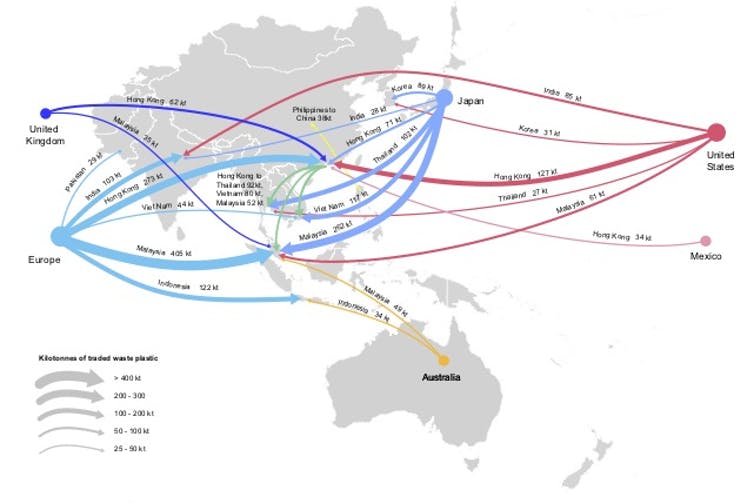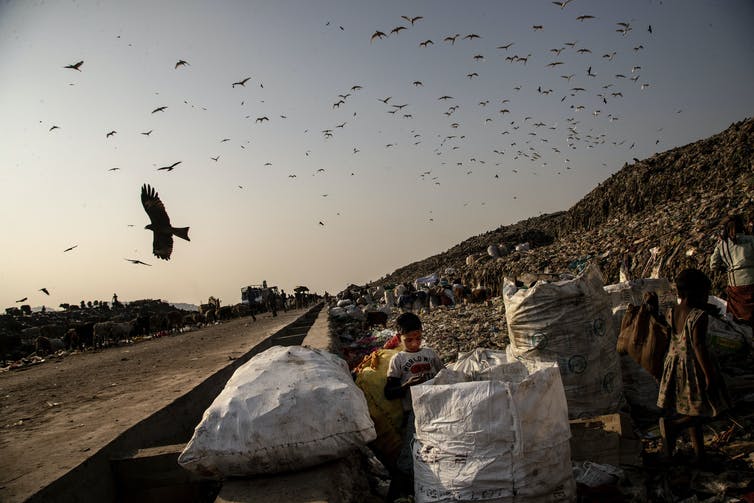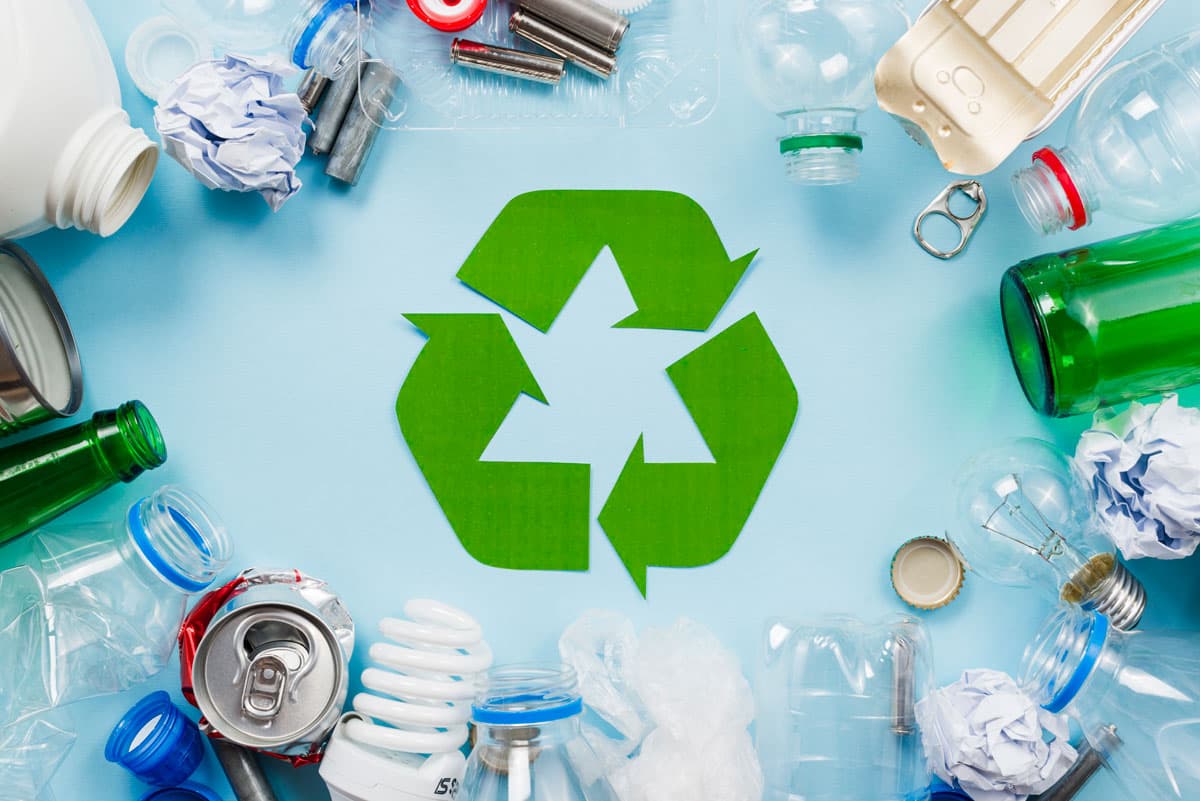Shifting plastic tides
China banned the import of plastic waste in January 2018 to forestall the receipt of low-value plastics and to stimulate the house recycling commerce.
Following the bans, the worldwide plastic waste commerce shifted within the route of Southeast Asian nations akin to Vietnam, Thailand, Malaysia, and Indonesia. A very powerful exporters of waste plastics in 2019 had been Europe, Japan and the US. Australia exported plastics primarily to Malaysia and Indonesia.
Australia’s waste export ban recently grew to turn into laws. From July this yr, solely plastics sorted into single resin types is perhaps exported; blended plastic bales cannot. From July subsequent yr, plastics must be sorted, cleaned and become flakes or pellets to be exported.
This may occasionally more and more help cope with the difficulty of recyclables becoming marine air air pollution. Nonetheless it might require a serious development of Australian plastic reprocessing functionality.

Map exhibiting the import and export map of plastic waste globally
What we found
Our analysis was funded by the federal Division of Agriculture, Water and the Ambiance. It involved interviews with commerce specialists, consultants, lecturers, NGOs and recyclers (in Australia, India, Indonesia, Japan, Malaysia, Vietnam and Thailand) and an intensive consider of present evaluation.
We found in relation to the worldwide plastic commerce, plastics most often leak into the ambiance on the holiday spot nation, comparatively than on the nation of origin or in transit. Low-value or “residual” plastics – these left over after further invaluable plastic is recovered for recycling – are greater than prone to end up as air air pollution.
So how does this happen?
In Southeast Asia, sometimes solely registered recyclers are allowed to import plastic waste. Nonetheless because of extreme volumes, registered recyclers typically on-sell plastic bales to informal processors.
Interviewees acknowledged when plastic types had been considered low price, informal processors steadily dumped them at uncontrolled landfills or into waterways. Usually the waste is burned.
Plastics stockpiled outdoors is perhaps blown into the ambiance, along with the ocean. Burning the plastic releases toxic smoke, inflicting damage to human effectively being and the ambiance.
Interviewees moreover acknowledged when informal processing providers wash plastics, small objects end up in wastewater, which is discharged instantly into waterways, and eventually, the ocean.
Nonetheless, interviewees from Southeast Asia acknowledged their very own residence waste administration was a greater provide of ocean air air pollution.

Plastic waste meant for recycling can end up in overseas landfill, sooner than it blows into the ocean
